Eating roadkill in West Virginia
- Published
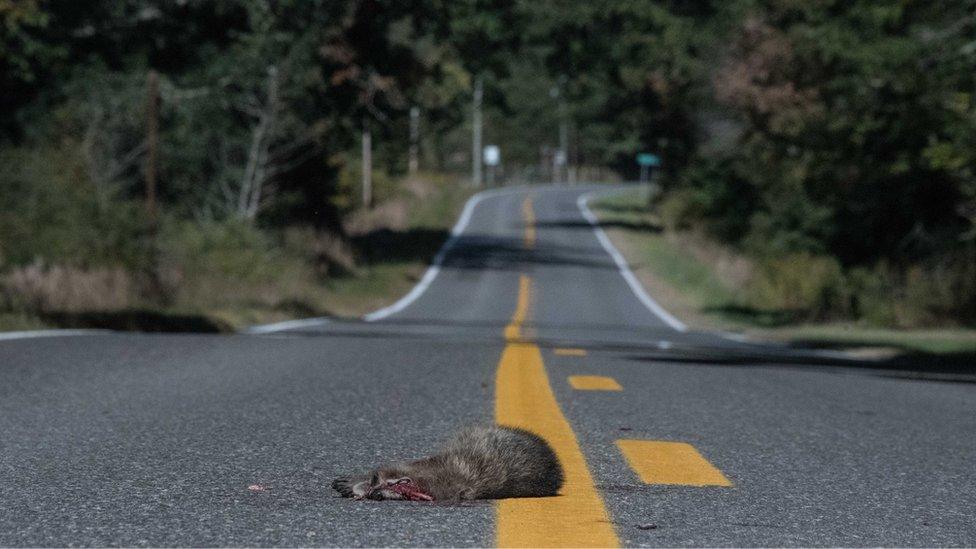
The town of Marlinton, in the mountains of West Virginia, has a population of just over 1,000 people. It hosts one of America's most unusual events each year: The Roadkill Cooking Festival. Black bear, possum, elk and even reptiles are on the menu.
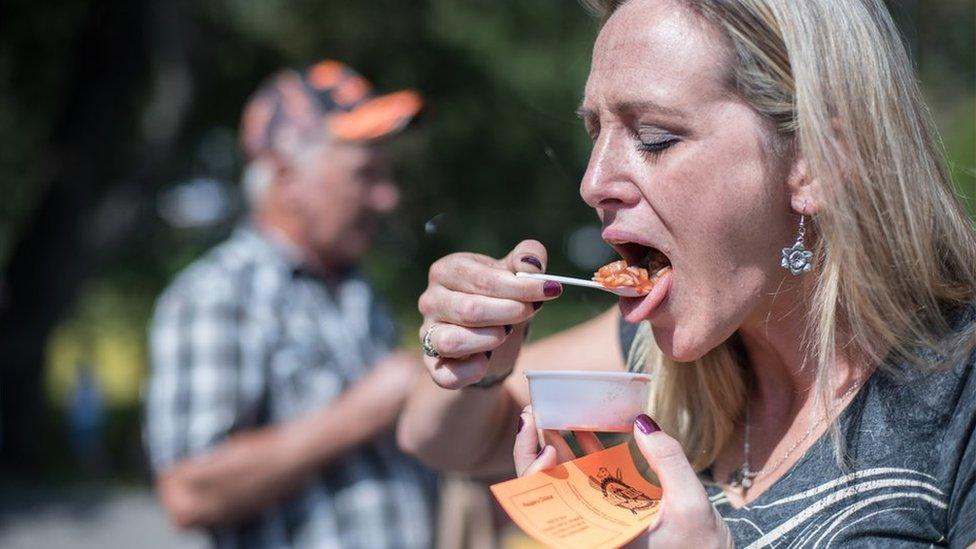
Although rarely practised today, cooking and eating animals hit by vehicles has old roots in mountainous parts of the state. Resources are scarce in many areas and wasting food is frowned upon. Locals are proud of their rugged culture, but are also stereotyped for it. "I'm a little scared," said Ciara Boggs, before eating a mouthful of snapping turtle, boiled in a stew with tomato and onions. She later conceded it tasted quite good.
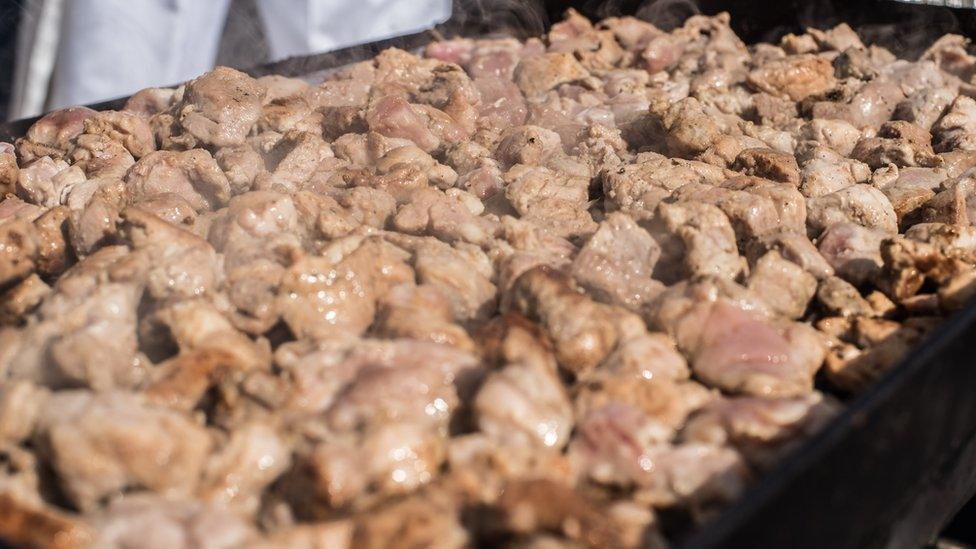
The Roadkill Cookoff is a competition between amateur chefs. Judges deduct points for gravel or asphalt found in food. But not everything on the menu is roadkill. Which bits of meat are, and which bits aren't, is intentionally kept a secret to add to the squeamish atmosphere. Pictured here is wild boar.
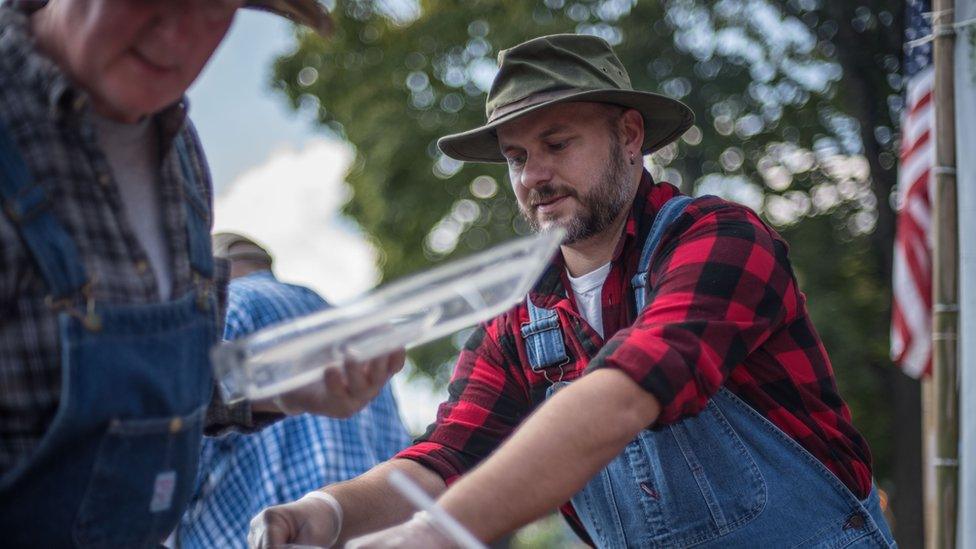
The festival takes place in a field behind Marlinton. Visitors hoping to try the local delicacies are charged $5 (£3.85) for a wrist band, which gives them access to all the tasting stalls. Quail meatballs, sourced locally, were popular this year. Iguana tacos, driven all the way from California, were less so.
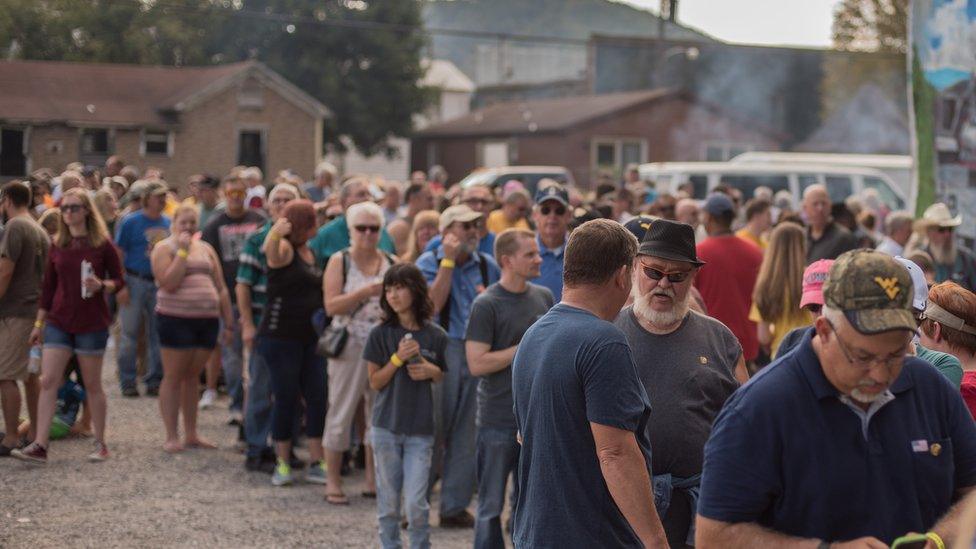
Marlinton's roadkill draws in thousands of hungry Americans, many from southern US states such as North Carolina and Georgia. "The festival is a tremendous income for the whole county," says Ben Wilfong, who organises the event. "People here grow up with families who don't have a lot. But ask someone from Marlinton for the shirt off their back and they'll give it you." Mr Wilfong guesses 12,000 people attended the festival this year - the 24th in Marlinton's history.
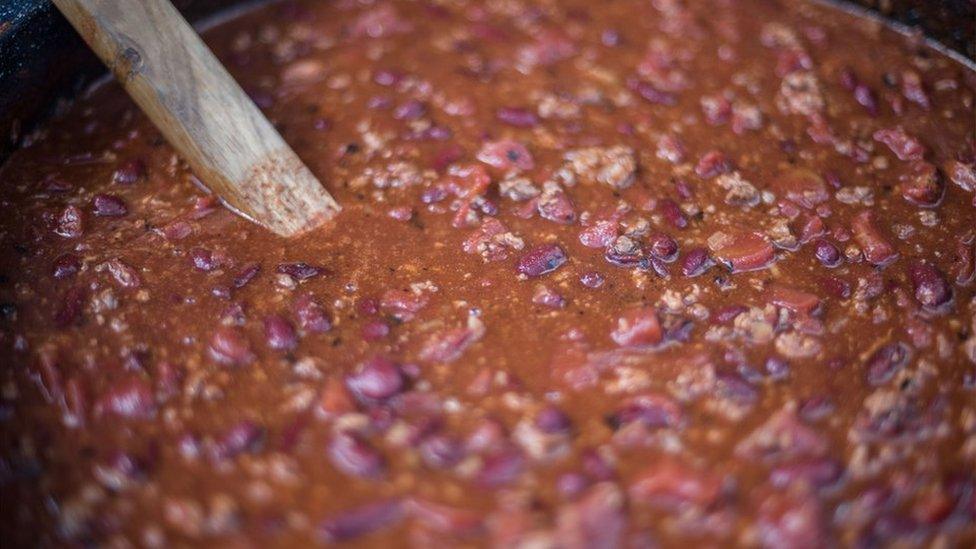
A thick broth of stewed black bear, mixed with beans and chilli, bubbled over a stove for hours on the hot September day. Eating these animals is not uncommon in Pocahontas County, of which Marlinton is the largest town. Bear hunting with dogs, rifles, and even bow and arrows is permitted in the surrounding forests and hills.
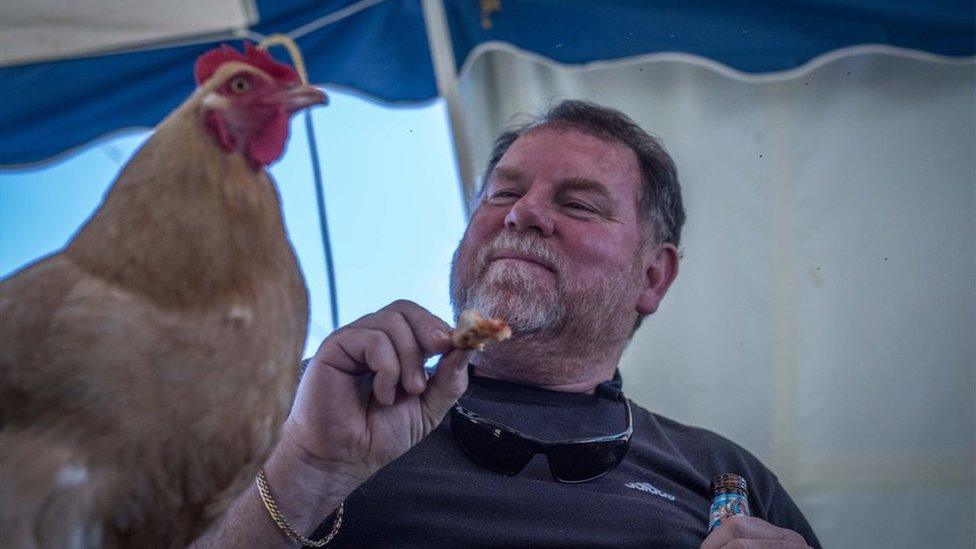
By embracing West Virginia's stereotypes, residents of Marlinton have struck gold with roadkill cooking. Their event generates tens of thousands of dollars for the town. Ed Blackford, pictured here with a tame chicken, has participated for 14 years. "The whole thing is tongue and cheek," he said. "It's a stab at what other Americans think of us West Virginians. They call us rednecks, but that can be a compliment down here. This is about having fun. It's about economic rejuvenation."
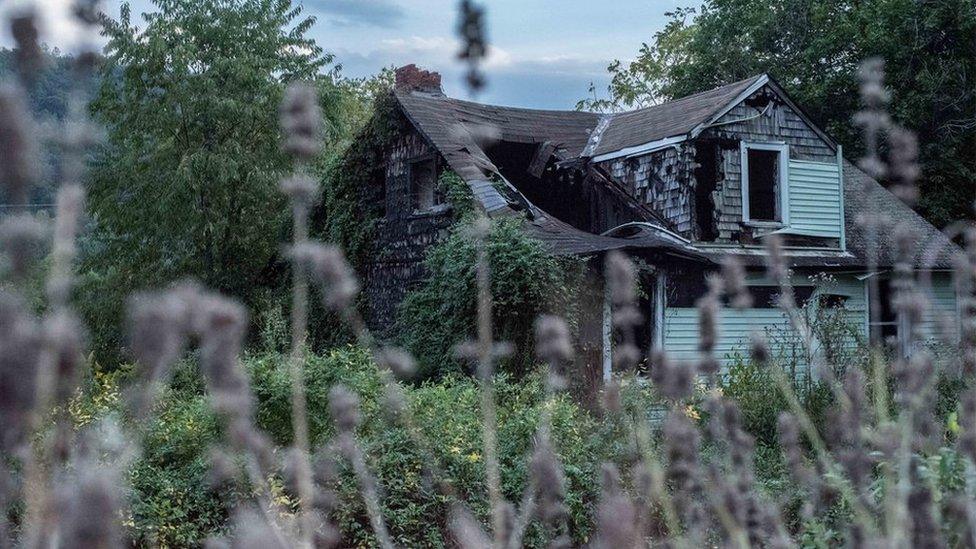
West Virginia is one of the poorest states in the US. Less than half of the adult population have jobs, and almost 20% live in poverty in some rural areas. The collapse of the coal mining industry, in the face of growing competition from abroad and environmental regulations at home, is the major cause. Connected industries have been badly affected as well, including trucking, quarrying and even hospitality.
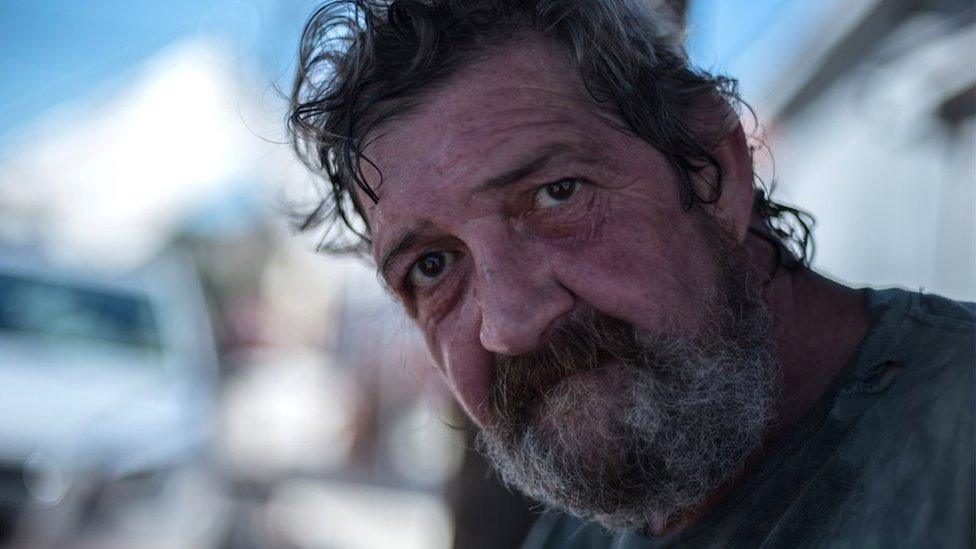
Timothy Schoolcraft worked through the heat of day to set up canvas stalls for the roadkill festival, despite breaking his ribs and leg in car accident in June. He remembers what Marlinton used to be like during the boom years of the 1970s, when he worked as an artisan in a local shoe factory. "I miss it," he says, referring to the now-closed factory. "This place isn't the same. On Friday night, if you didn't get into town before 5pm, you couldn't find a parking space. We had three pool bars. Hot dogs were 10 cents. It's all gone now."
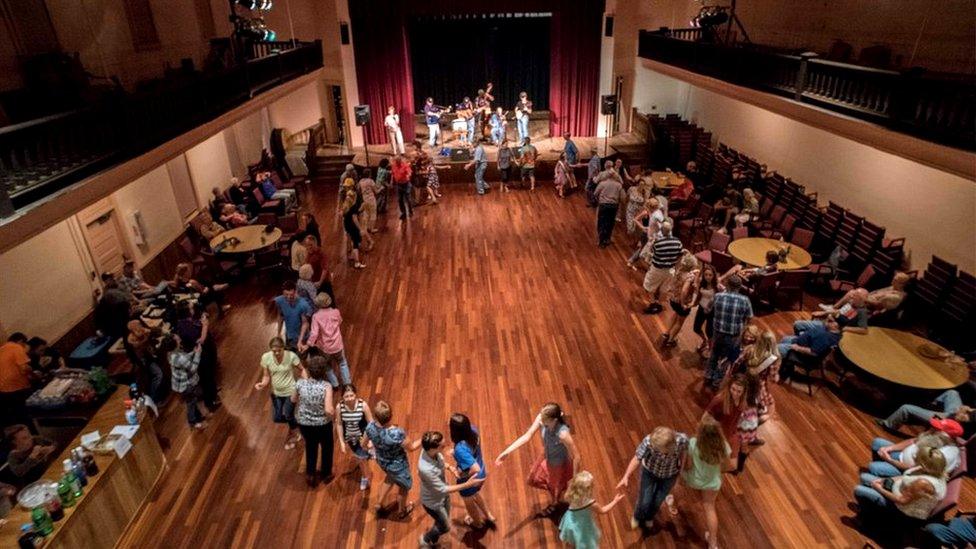
Just over 12% of people are unemployed in Marlinton. Over 97% are white, and their average age is 47, according to US Census data. Traditions remain however, like this square dance in the town's opera house. Locals here play "old time", a style of music which dates back to early days of the British colonies. "Chase the rabbit, chase the squirrel, chase that there pretty young girl," called the lead singer of Mud Hole Control on the microphone. The fiddle, the banjo and the bass are the band's core instruments.
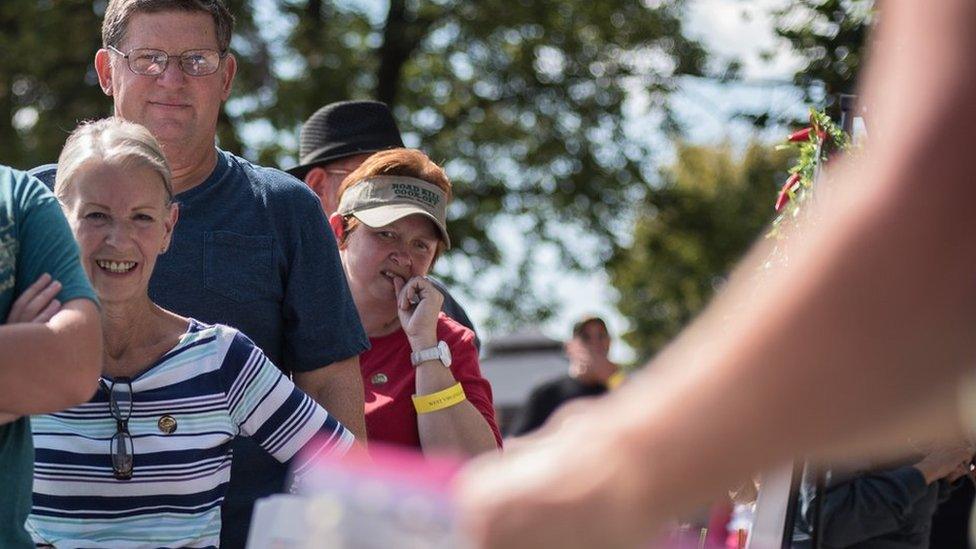
Two enthusiastic customers, and one nervous-looking one, queue for some iguana. "We celebrate our own culture here," said Sherry Mcarty, who assisted with the festival preparations. "People make fun of us, but we also make fun of them. You have to work with what's unique in your area to make tourism work."
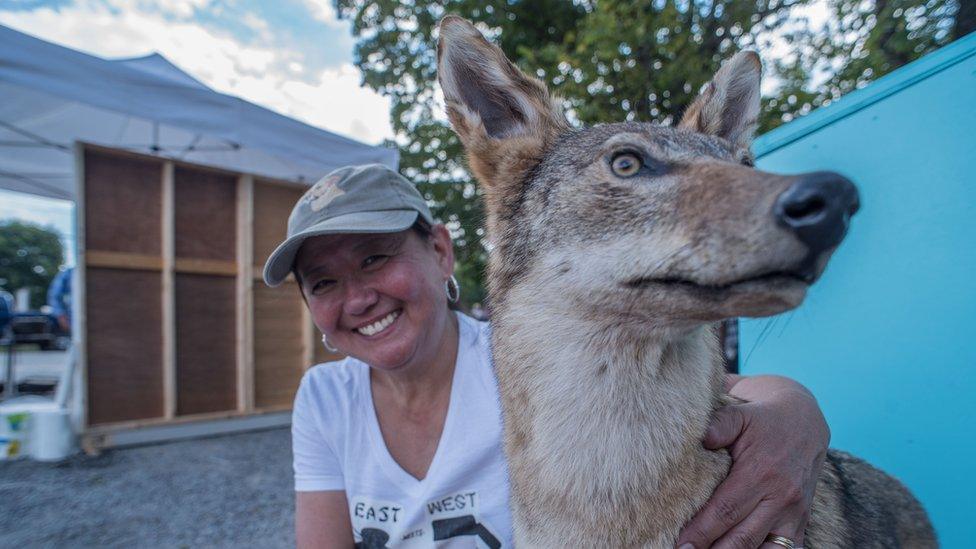
"I went to bed at 1am and I was up at 5am," said Jannet Mitchell, who cooked venison and boar at the festival. To spice things up, she fried the venison into crispy wontons and brought along her stuffed coyote to entice customers. "My husband bought this thing!" she laughed, when asked about the animal.
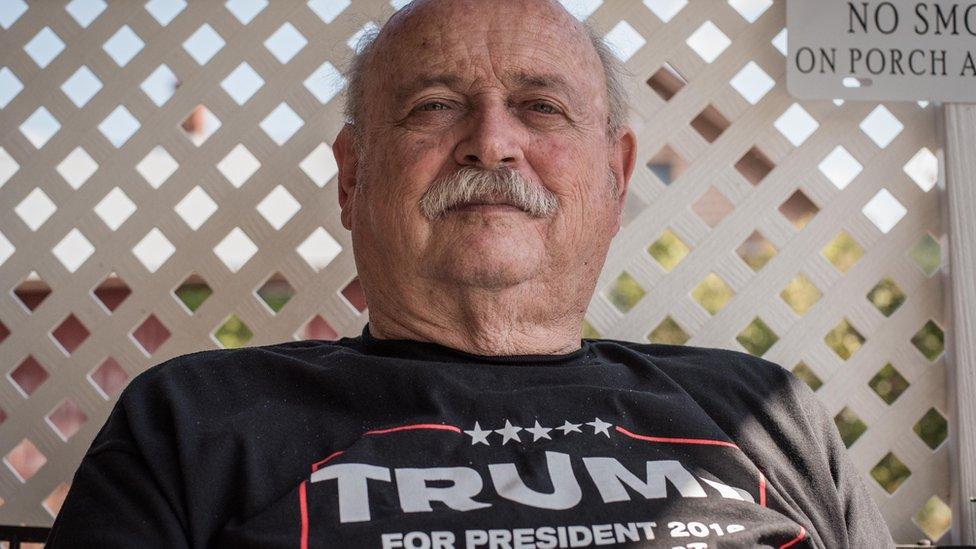
"My grandma always had rabbit and squirrel gravy for breakfast with a big hoe biscuit," says Bob Boone, an 80-year-old retired funeral director. He has been going to the roadkill festival for years with his wife Melvene, a retired nurse. Mr Boone finds Donald Trump's Make America Great Again slogan inspiring. "The stock market is doing great, but folks like us are not," he says. "This is our last chance. If we don't take control this time, it'll never happen. Lots of hidden people will vote for Trump on election day."
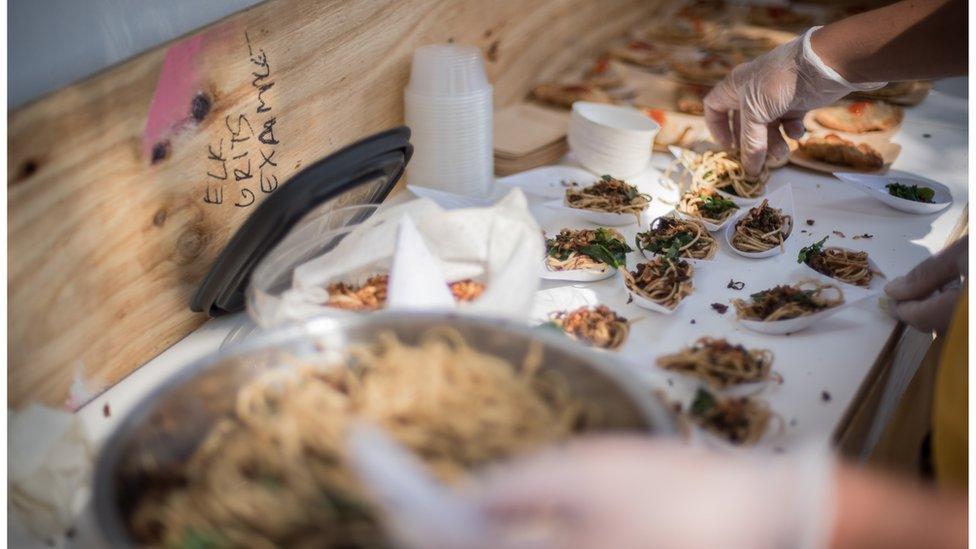
Creativity is valued in the preparation of the Roadkill Cookoff dishes. Pictured here are elk grits served over noodles. Not all chefs are local. Some travelled from as far afield as California and New Mexico to showcase their rustic cooking skills.
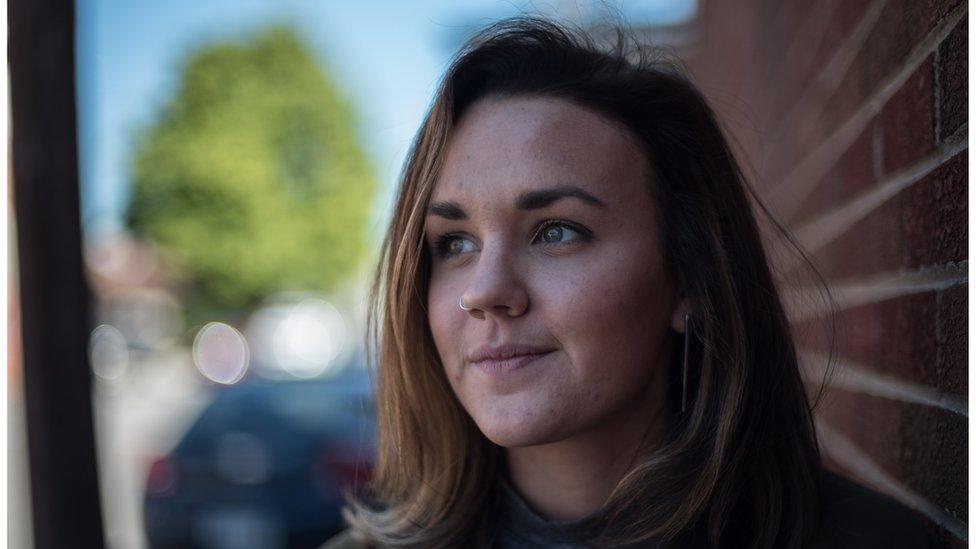
Many young people have left Marlinton in search of jobs elsewhere. Chelsea Walker, 22, has remained. She works as a social media strategist for the local tourism office and has been busy recently promoting the Roadkill Cookoff. "West Virginia is changing, coal is dying," she said, explaining how her family have gradually moved away from the industry. "I prefer to stay and live in places like Marlinton though, where you know everybody. Time seems to slow down here - in a good way."
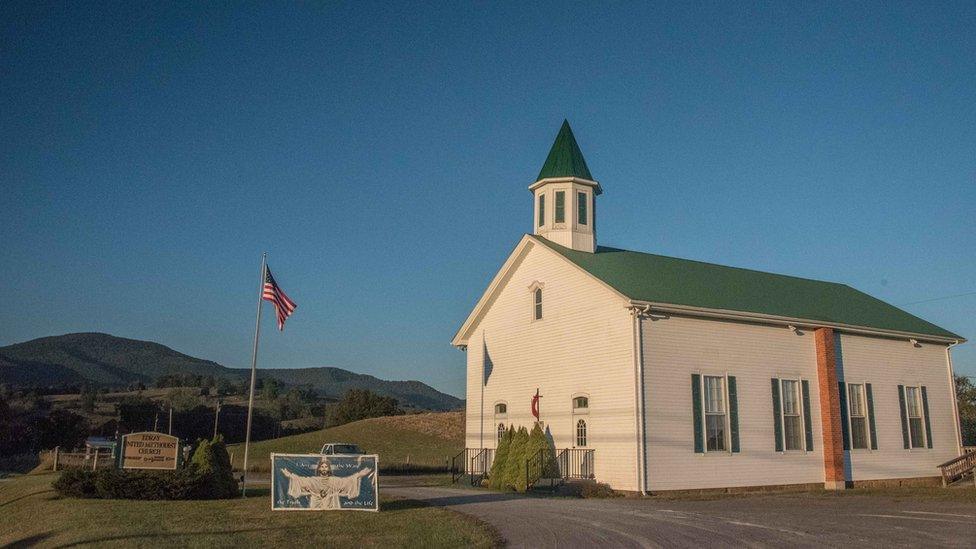
Methodists, Seventh Day Adventists, Catholics and Jehovah's Witnesses all compete for souls in Marlinton. Slogans like Christian Lives Matter are posted on billboards - a reminder of the conservatism in the area. "I will decide my vote in the election based on the issue of abortion," said Sam Felton, Mayor of Marlinton and an assistant Methodist pastor. "I'm not really interested in being politically correct."

"CNN is known as the Communist News Network in these parts," says Curt Kershner, a representative of the West Virginia Citizens Defense League, who attended the festival. Mr Kershner's views are not representative of West Virginia as whole, given the state has a historic Democratic track record. But since 1996, the state has voted Republican during presidential elections. "The economy has tanked," Mr Kershner went on. "Firearms is one of the few things that continues to do well as a business. Local stores sell ammunition, arms, cleaning equipment - all these things do a service to the community."
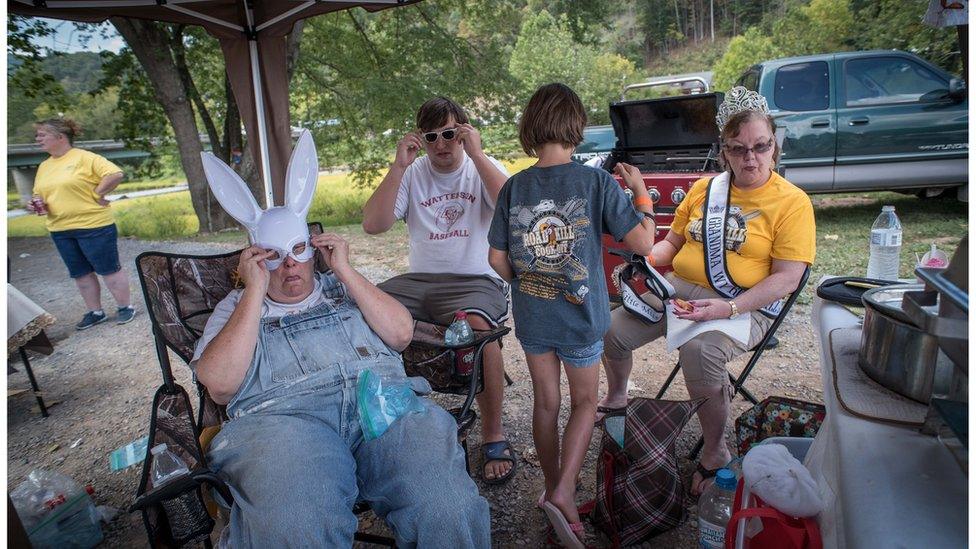
A family of roadkill cooking participants, including the locally elected "Ms Grandma Roadkill 2016", took a break as the festivities came to an end. "I tried iguana, and that was strange because my granddaughter has a pet iguana," said the victorious Ms Roadkill. "Today was fantastic. I met lots of different people, and the first pageant I ever entered I won!"
- Published2 September 2016
- Published25 September 2016
- Published28 August 2016